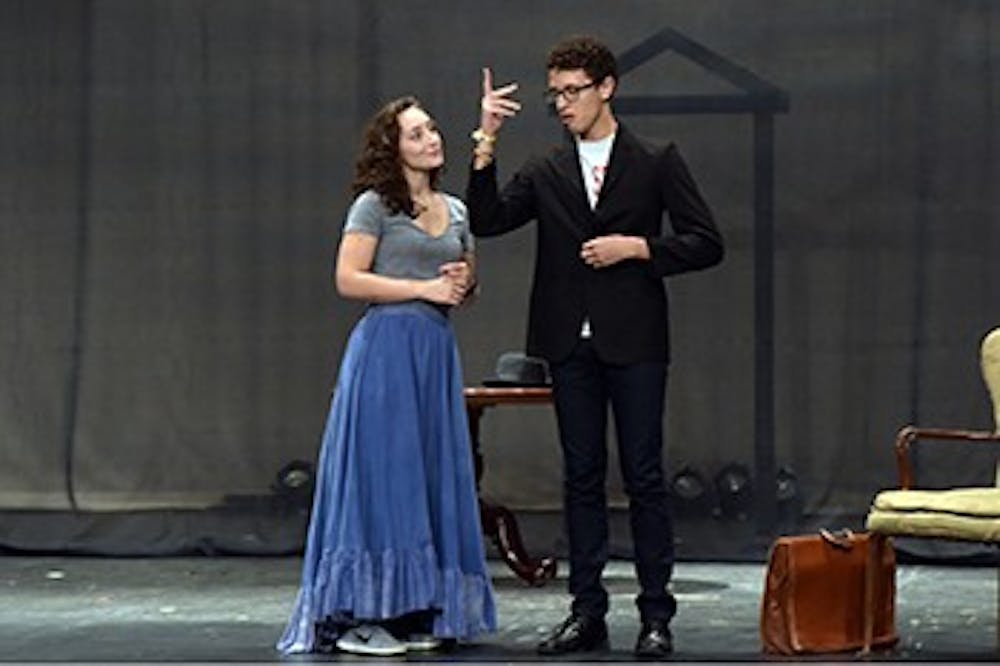What: Parade
When: September 23, 24, 27- October 1 at 7:30 p.m.
September 25 and October 2 at 2:30 p.m.
Where: University Theatre
Tickets are $15 for Ball State students, faculty, staff and senior citizens; $18 for the general public; and $10 for children
History will soon come to life on the stage as Ball State’s Department of Theatre and Dance prepares for the opening night of "Parade," a musical glimpse into a poignant event in America’s past.
Based on a true story, the production centers around the murder of 13-year-old Mary Phagan in 1913 and the subsequent trial of her murderer and boss, Leo Frank.
The show opens on Sept. 23 at 7:30 pm in the University Theater.
Under the direction of Beth Turcotte, the cast has come together to bring to life the events detailed in the play written by Alfred Uhry, who is also known for writing "Driving Miss Daisy."
Set in post-Civil War Georgia during the reemergence of the KKK, "Parade" deals closely with ideas of race, equality and accountability.
Courtney Martin, a junior musical theatre major, is playing the role of Phagan.
“It’s about equality and justice for all people,” Martin said. “The Leo Frank trial was handled in a very unjust way and mob violence had a huge role. It’s really interesting now, in a time where there is so much injustice in the world.”
The play deals with sensitive subject matters such as race, discrimination and anti-Semitism.
“Though slavery was technically abolished, racism and race restrictions were still very present. This wasn't even just racism against African Americans but, as the show clearly points out, against anyone who was not white and Christian,” said associate director Emily Kipp.
Though it might seem strange to have a musical centered around such a dark theme, the two concepts are not entirely separate.
“It is very dark, but it’s not angsty dark. It’s thought provoking. It’s a beautiful evil,” Martin said. “There are a lot of high energy [songs] and that’s always refreshing because the play is so dark.”
Despite the century separating the events of "Parade" and the social injustice in the world today, the two are still comparable, something that is not lost on the cast and crew of the production.
“The biggest challenge with this world was simply making sure everyone onstage was as comfortable as they possibly could be,” Kipp said.
While racism is a prevalent theme in the production, "Parade" focuses on more than just racial tension.
“The story deals with a lot of huge issues including love, marriage, political motivations,” Kipp said.
“It takes a look at corrupt politicians and how they play a role in society," Martin said. "I think especially with the election coming up that it’s something we can all be more aware of, how politicians can shade things to look one way when they are really another."





